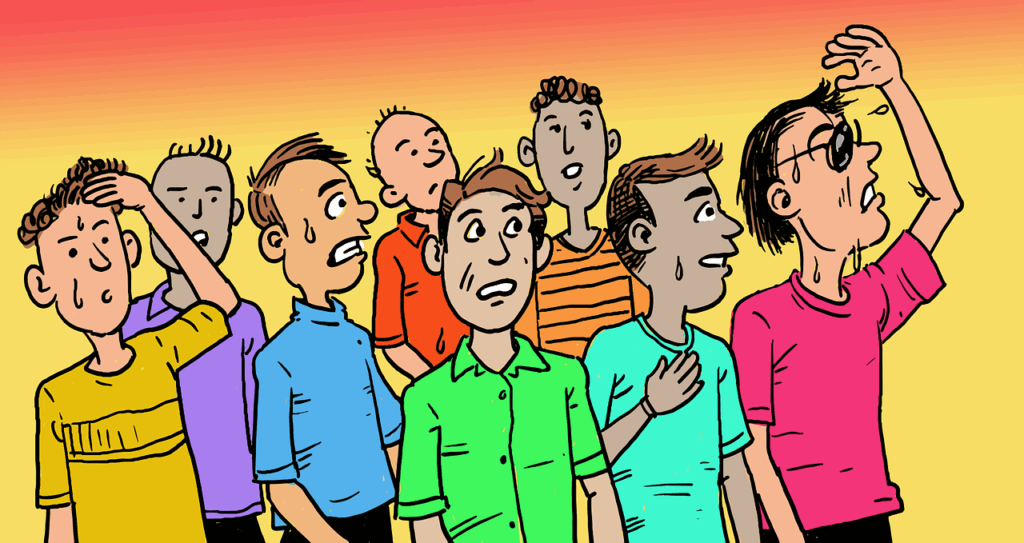Extreme heat wasted no time rearing its ugly head this summer. After arriving with the summer solstice, it’s been wreaking havoc on and off ever since. You’re probably aware of the many ways in which extreme heat can affect your physical body, but you may be less familiar with its potential impact on your mental health.
Although we don’t know exactly how extreme heat affects mental health, several studies have shown that it is a factor. The number of hospital visits increases during heat waves, along with suicide rates, aggressive behaviors, and domestic violence. Heat can disrupt sleep, which often leads to irritability, frustration, and increased stress levels.
Some research even suggests that high temperatures can affect how the brain functions as it interferes with memory and your ability to perform. It may also impact levels of serotonin, a brain chemical that helps regulate your mood, especially in people with depression. Extreme heat can also minimize the effectiveness of some mental health medications.
How to Manage the Heat
When the temperatures reach dangerous levels, pay attention to what your body is telling you. Do you notice a change in your behavior? Are you overly stressed and irritable, or do you have trouble concentrating and sleeping? These are just a few of the signs that extreme heat could be affecting your physical and mental health.
Whether you’re already managing a mental health condition or you simply want to minimize how the extreme heat may be affecting your mood, the following tips can help:
- Stay cool. Avoid the heat by spending most of your time in the air conditioning. If that’s not possible, take cold showers or use a cold cloth to cool down. Keep blinds and curtains closed, and use fans to circulate the air.
- Stay hydrated. Drink plenty of water. Caffeinated and alcoholic beverages can be dehydrating, so they actually work against you. If you’re out and about, bring plenty of water in a container that keeps it cold and refreshing.
- Dress appropriately. Lightweight, loose-fitting cotton fabrics are best for staying cool. If you’re spending time outdoors, wear a hat and sunglasses to shield yourself from the sun.
- Get adequate sleep and exercise. This is important for almost everything we do, but it becomes critical during a heat wave. It’s difficult to cope with the added stress if you’re not well rested. At the same time, eating right and staying in shape can also help your body cope with the excessive heat.
- Take your meds. If you’re taking medication for a mental health condition, don’t stop. Contact your healthcare professional if you have particular concerns.
- Spend time with others. Socializing can elevate your mood and help you stay connected. It also helps to know that friends, family members, and co-workers are watching out for you. They may be the first to notice changes in your mental health.
Image by Azmi Talib from Pixabay
Dr. David Lowenstein is a Columbus, Ohio-based psychologist with more than 35 years of experience. He conducts individual, family, and group therapy sessions in his German Village office and also via telehealth. Dr. Lowenstein is also available for expert forensic testimony, and for educational workshops and presentations. He is frequently called upon as an expert source for print, radio, and broadcast media. Contact Dr. Lowenstein at Lowenstein & Associates, 691 South Fifth Street, Columbus, Ohio, 43206, or call 614.443.6155 or 614.444.0432.


